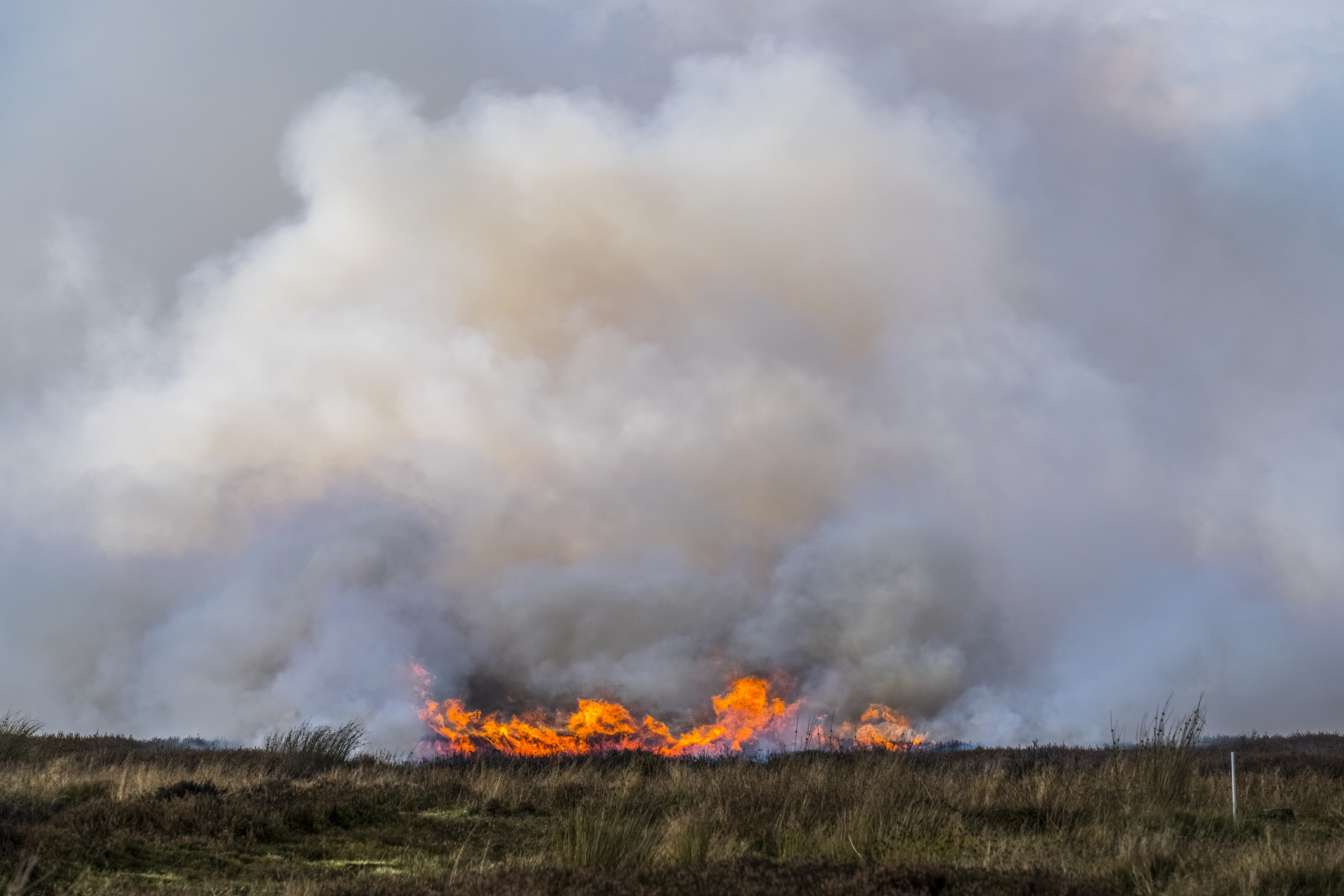The Devastating Effect Of Wildfires On Rare UK Wildlife

Table of Contents
Habitat Loss and Fragmentation
Wildfires wreak havoc on the delicate balance of UK ecosystems, causing significant habitat destruction and fragmentation. The intense heat and flames obliterate vital habitats, leaving behind a landscape unsuitable for many species. This loss directly translates to displacement and the loss of crucial food sources, leading to population declines and even extinctions. The consequences of wildlife habitat loss are far-reaching and devastating for UK biodiversity.
- Loss of nesting sites: Birds like the hen harrier and capercaillie, already facing population pressures, lose vital nesting sites, impacting breeding success and long-term survival.
- Destruction of foraging grounds: Mammals such as the pine marten and red squirrel rely on specific habitats for foraging. Wildfires destroy these crucial areas, impacting their ability to find food and survive.
- Impact on wetland habitats: Wildfires can severely damage wetland ecosystems, which are crucial for amphibians and reptiles. The destruction of these habitats can lead to significant population declines in these vulnerable species.
- Habitat fragmentation: Even if some areas survive the fire, the surrounding destruction fragments habitats, creating isolated populations. This hinders species migration, gene flow, and breeding success, further weakening their resilience. This fragmentation of habitats is a significant threat to UK biodiversity.
Direct Mortality and Injury
Beyond habitat loss, wildfires cause immediate and devastating direct mortality and injury to wildlife. The intense heat, flames, and smoke inflict burns, smoke inhalation, and other injuries, leading to significant losses. Many animals are unable to escape the rapidly spreading fires.
- Vulnerability of slow-moving creatures: Reptiles and amphibians, with their slower movement, are particularly vulnerable to being trapped and killed by the advancing flames.
- Impact on nocturnal animals: Nocturnal animals are often disoriented by the smoke and flames, increasing their risk of injury or death.
- Increased risk of predation: Habitat destruction leaves surviving animals more exposed to predators, further increasing mortality rates.
- Long-term health problems: Animals that survive may suffer from long-term health problems due to smoke inhalation and exposure to toxins released during the fire. These health issues can impact their ability to reproduce and survive.
Long-Term Impacts on Ecosystem Function
The effects of wildfires on UK ecosystems extend far beyond immediate mortality and habitat loss. The long-term ecological impacts are profound and far-reaching, disrupting the delicate balance of nature.
- Soil erosion and nutrient depletion: Wildfires destroy the protective vegetation cover, leading to soil erosion and nutrient depletion. This makes it harder for plants to regrow, impacting the entire food web.
- Altered water cycles: The loss of vegetation alters water cycles, increasing the risk of flooding and impacting water quality.
- Changes in plant community composition: Wildfires can dramatically change the composition of plant communities, favoring certain species over others. This can have cascading effects on the entire food web.
- Increased vulnerability to invasive species: Damaged ecosystems are more susceptible to invasion by non-native species, which can further destabilize the balance of the ecosystem. Post-fire recovery is often hampered by the spread of invasive species.
Specific Case Studies
Recent wildfires in areas like the Dartmoor National Park have demonstrated the devastating effects on rare wildlife. Reports suggest significant losses of reptile and amphibian populations, alongside the destruction of vital habitats for several bird species. These specific instances highlight the urgent need for improved wildfire prevention and management strategies.
Conclusion
The devastating impact of wildfires on rare UK wildlife is undeniable, encompassing habitat loss, direct mortality, and long-term ecosystem disruption. The loss of biodiversity is a severe threat to the health and resilience of our ecosystems. Protecting our rare UK wildlife from the devastating effects of wildfires demands urgent and concerted action from us all. Let’s work together to secure a future where these precious species can thrive. Support wildfire prevention initiatives, donate to wildlife conservation charities, learn about responsible land management practices, and advocate for stricter regulations to prevent wildfires. Every action counts in safeguarding our nation's irreplaceable natural heritage.

Featured Posts
-
 Ryujinx Switch Emulator Project Ends After Reported Nintendo Intervention
May 13, 2025
Ryujinx Switch Emulator Project Ends After Reported Nintendo Intervention
May 13, 2025 -
 Pendekatan Sby Dalam Mengatasi Konflik Myanmar Sebuah Studi Kasus
May 13, 2025
Pendekatan Sby Dalam Mengatasi Konflik Myanmar Sebuah Studi Kasus
May 13, 2025 -
 Lara Croft Tomb Raider The Cradle Of Life Legacy And Impact
May 13, 2025
Lara Croft Tomb Raider The Cradle Of Life Legacy And Impact
May 13, 2025 -
 Self Defense Shooting Do You Need Insurance Coverage
May 13, 2025
Self Defense Shooting Do You Need Insurance Coverage
May 13, 2025 -
 Lywnardw Dy Kapryw W Adryn Brwdy Dr Mdhakrh Bray Aywl Knywl
May 13, 2025
Lywnardw Dy Kapryw W Adryn Brwdy Dr Mdhakrh Bray Aywl Knywl
May 13, 2025
